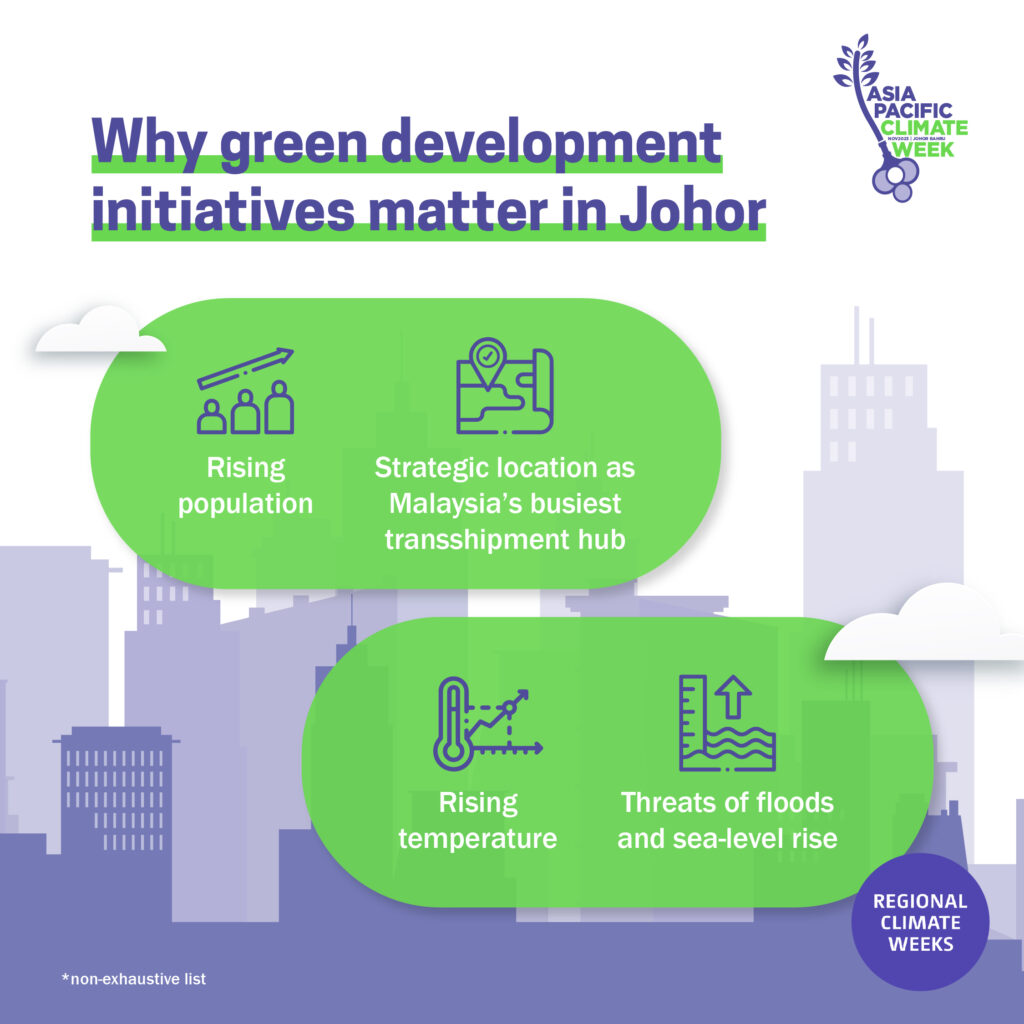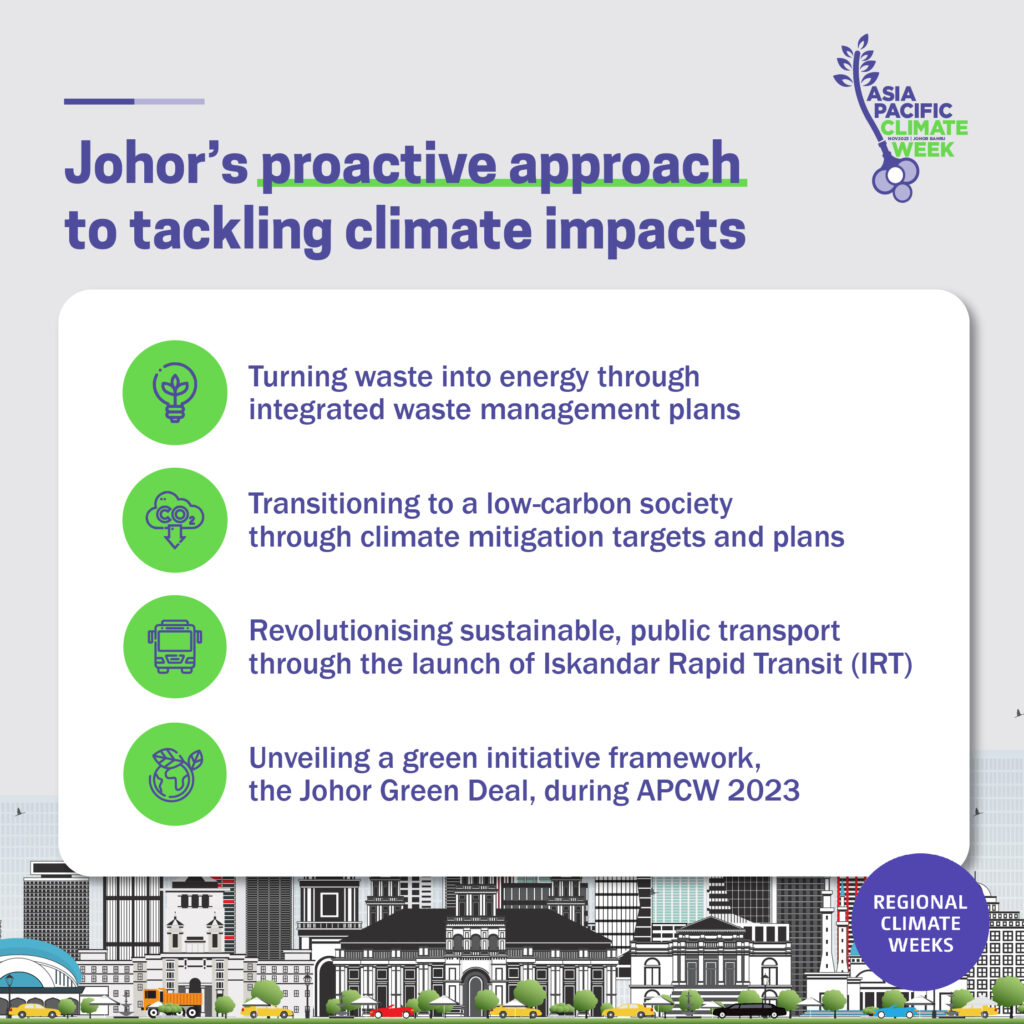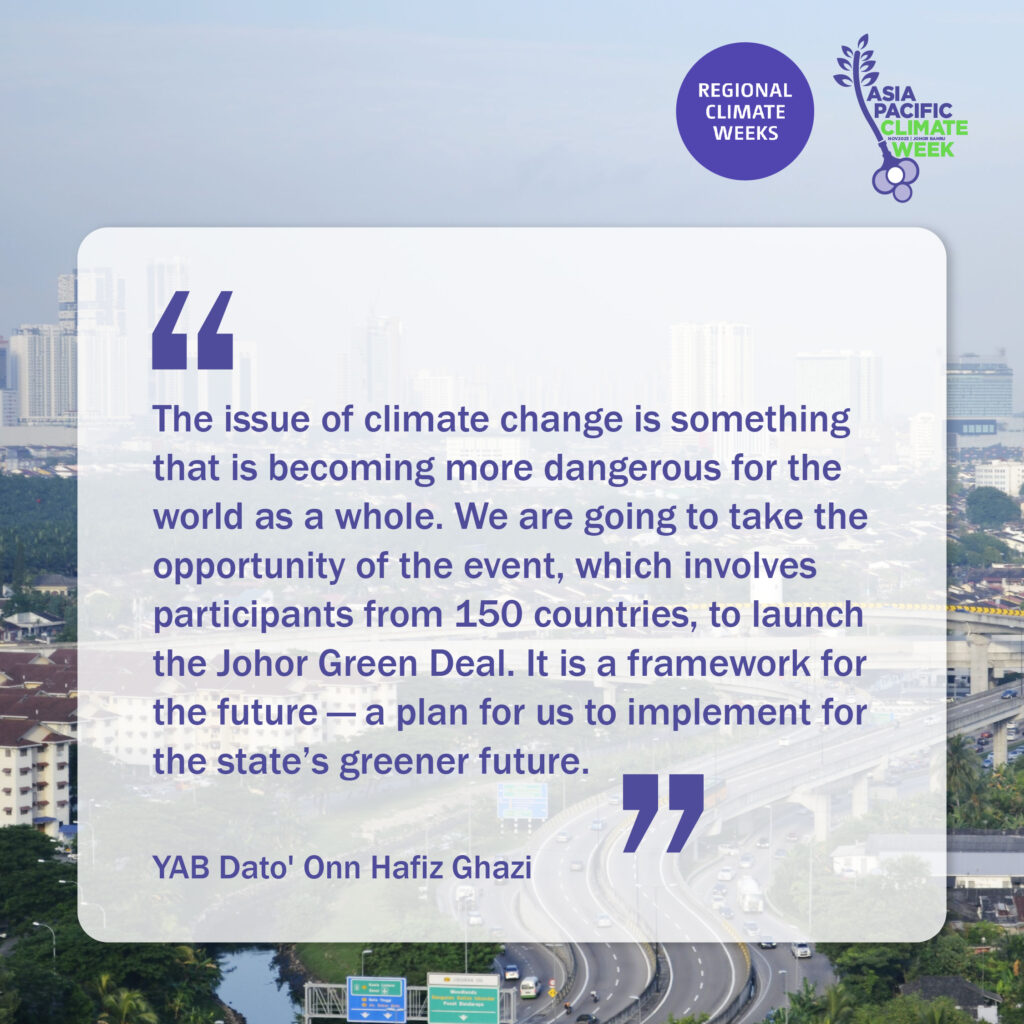
Johor, often called the southern jewel of Malaysia, holds a pivotal role in the nation’s development.
As the highest contributor to the country’s total trade from January to April 2023, this dynamic state boasts a population of over 4 million as per the 2020 census, with a projected surge to as much as 5 million citizens by 2030. Alongside this rapid growth comes a nearly doubling water demand projection during the same period. Situated as the country’s busiest transshipment hub, Johor leverages its strategic location at the crossroads of some of the world’s most vital trading routes, along the Straits of Malacca and the Singapore Strait.
While Johor is an engine for economic growth and strategic importance, it often stands hand-in-hand with environmental challenges. According to a study by Think City, the city of Johor Bahru registered a 6.7°C temperature increase in the span of 13 years between 2005-2018—linked primarily to urban heat island effect, and Johor being situated near the earth’s equator. Additionally, Johor faces recurring flash floods and the imminent threat of sea-level rise by 2050. Just this year, over 80,000 victims in 10 districts had to relocate due to flooding.
Amidst these pressing concerns, Johor looks to navigate the challenges of climate change, making events like the Asia-Pacific Climate Week (APCW) 2023 both timely and essential. The state remains committed to transforming into a regional eco-hub, with policies and plans aimed at reshaping the economy to support a low-carbon future.

In line with the theme for APCW 2023, each individual holds the K.E.Y (Keep Earth Yours) to make a difference in combating climate change, as it affects us all. Johor rises to model this philosophy for sustainable cities and communities across Malaysia and Asia Pacific as a whole. It recognises that collective action and individual choices are the keys to unlock significant environmental impact and pave the way for a sustainable future by embarking on a set of sustainable development initiatives like:
Turning waste into energy: In a first-of-its-kind initiative in Malaysia, the Federal Land Development Authority (Felda) is partnering with Greentech Axis Bhd to introduce integrated waste management plants (IWMP). These plants will not only manage solid waste and wastewater sustainably, but will also generate renewable energy from waste using cutting-edge green technology. Set to commence in 2024, this visionary project will collect farm waste, food waste, and solid waste from the Felda schemes. This initiative aligns with the Green Technology Master Plan Malaysia 2017-2030, aiming for a 28% recycling rate and waste-to-energy reuse by 2030. It’s a giant step toward a cleaner, greener future.
A low carbon society blueprint: Recognised in the CDP Global Ranking Cities A-List for leadership and transparency in climate action, Johor’s Iskandar Malaysia is an ambitious economic initiative. It aims to develop a substantial and valuable growth corridor in Malaysia’s Johor region by reducing greenhouse gas (GHG) emissions and building resilience against climate change impacts. Covering an extensive area of 221,634 hectares, Iskandar Malaysia is the largest single development project in Southeast Asia. Under the ‘Low Carbon Society Blueprint Iskandar Malaysia (LCSBPIM) 2030 Climate Action Plan,’ the region aims to achieve a remarkable 70% reduction in GHG emissions intensity by 2030 compared to 2010 levels. Initiatives like the Green Community Carbon Reduction Program (GCCRP) are also actively promoting sustainable development, with over 109,006.35 kg of waste recycled through 3,000 outreach programs.

Revolutionising sustainable transportation: The upcoming launch of the Iskandar Rapid Transit (IRT), a Bus Rapid Transit (BRT) system, is set to serve as a vital link to major transportation hubs like Senai Airport, Rapid Transit System, Double Tracking Rail (EDT Gemas-Johor Bharu), Larkin Sentral, and Puteri Harbour, enhancing the lives of Johoreans. With Iskandar Malaysia’s population at ~2.35 million, an estimated 844,000 people are projected to benefit from the IRT, creating up to 35,000 new job opportunities and delivering significant cost savings of 30% to 35% for public transport users. This game-changing initiative looks to boost both the state’s sustainability and accessibility.
A green deal for Johor’s future: Exciting news awaits at APCW 2023, as Johor’s state government unveils its ambitious green initiative framework, the “Johor Green Deal.” This forward-thinking program signifies Johor’s unwavering commitment to sustainable practices and environmental stewardship. It’s an exciting step towards forging a greener, more sustainable future for the region.

Through initiatives that address climate change first-hand, Johor not only demonstrates its commitment to sustainability, but also sets an inspiring example for sustainable cities and communities worldwide. The culmination of ideas and knowledge-exchange forming the global stocktake for COP28 will take place this 13-17 November 2023 at the Persada Johor International Convention Centre. Together with climate partners across Asia-Pacific, we look forward to shaping a brighter and more sustainable future for all.
For more information, follow us on Facebook, Instagram, X, or LinkedIn.